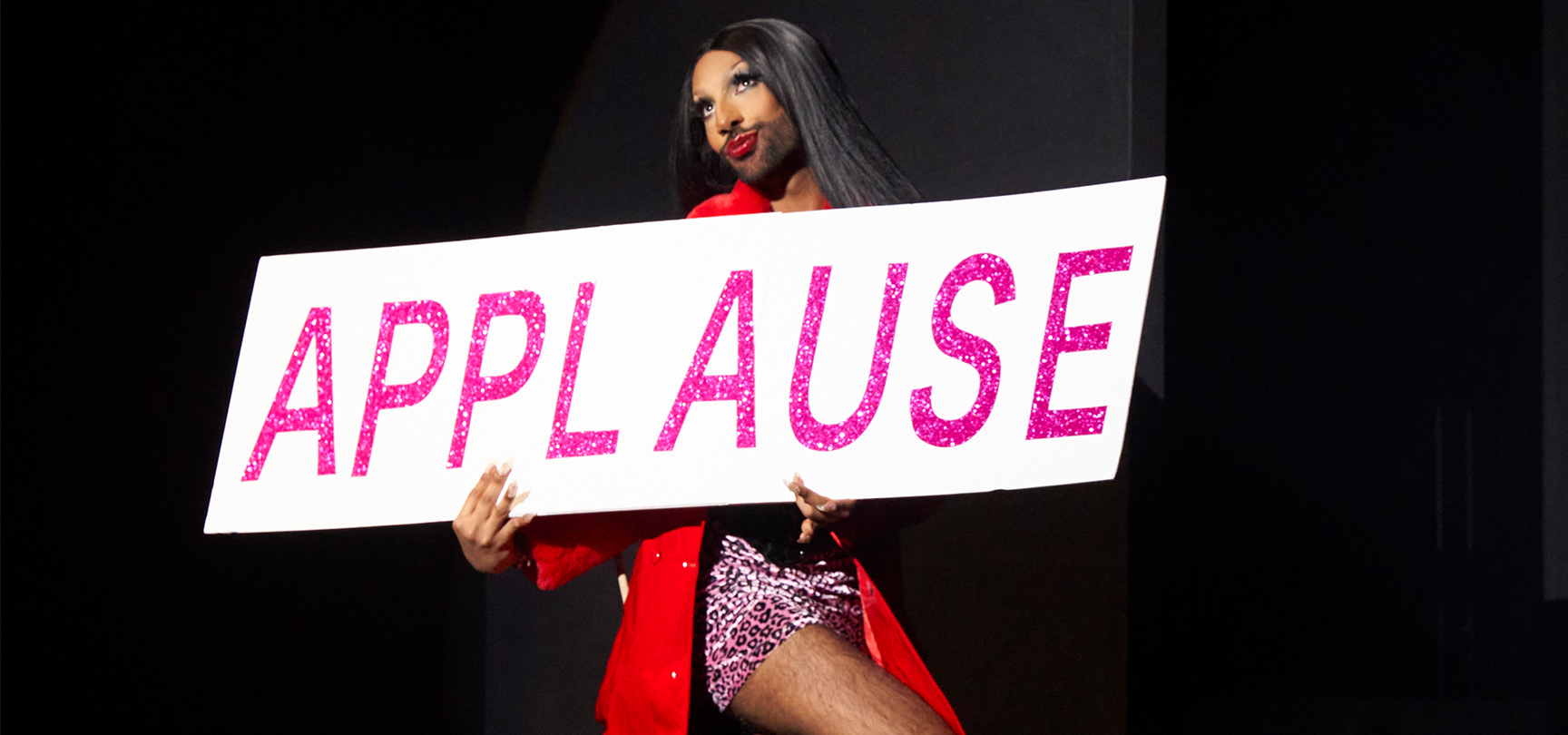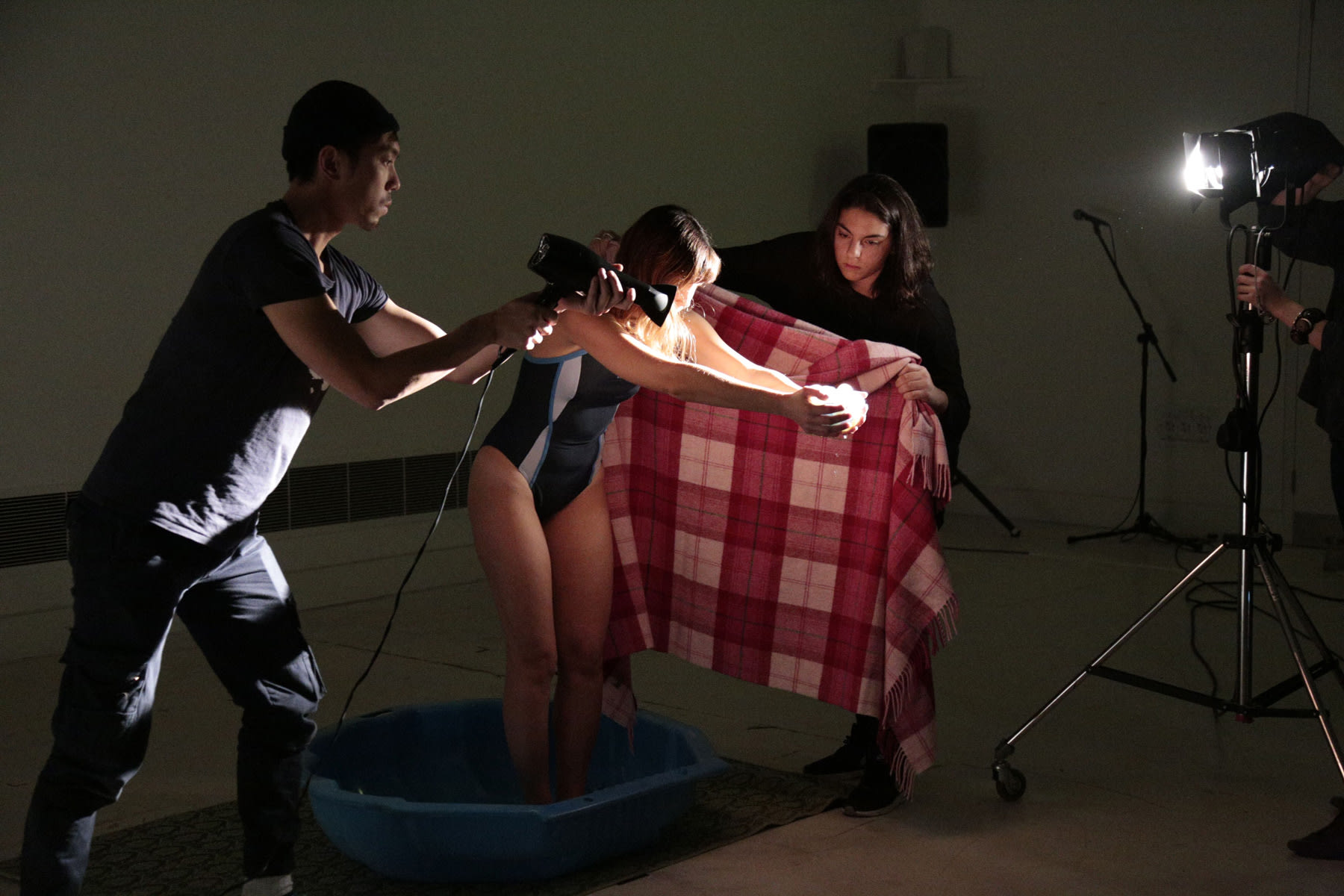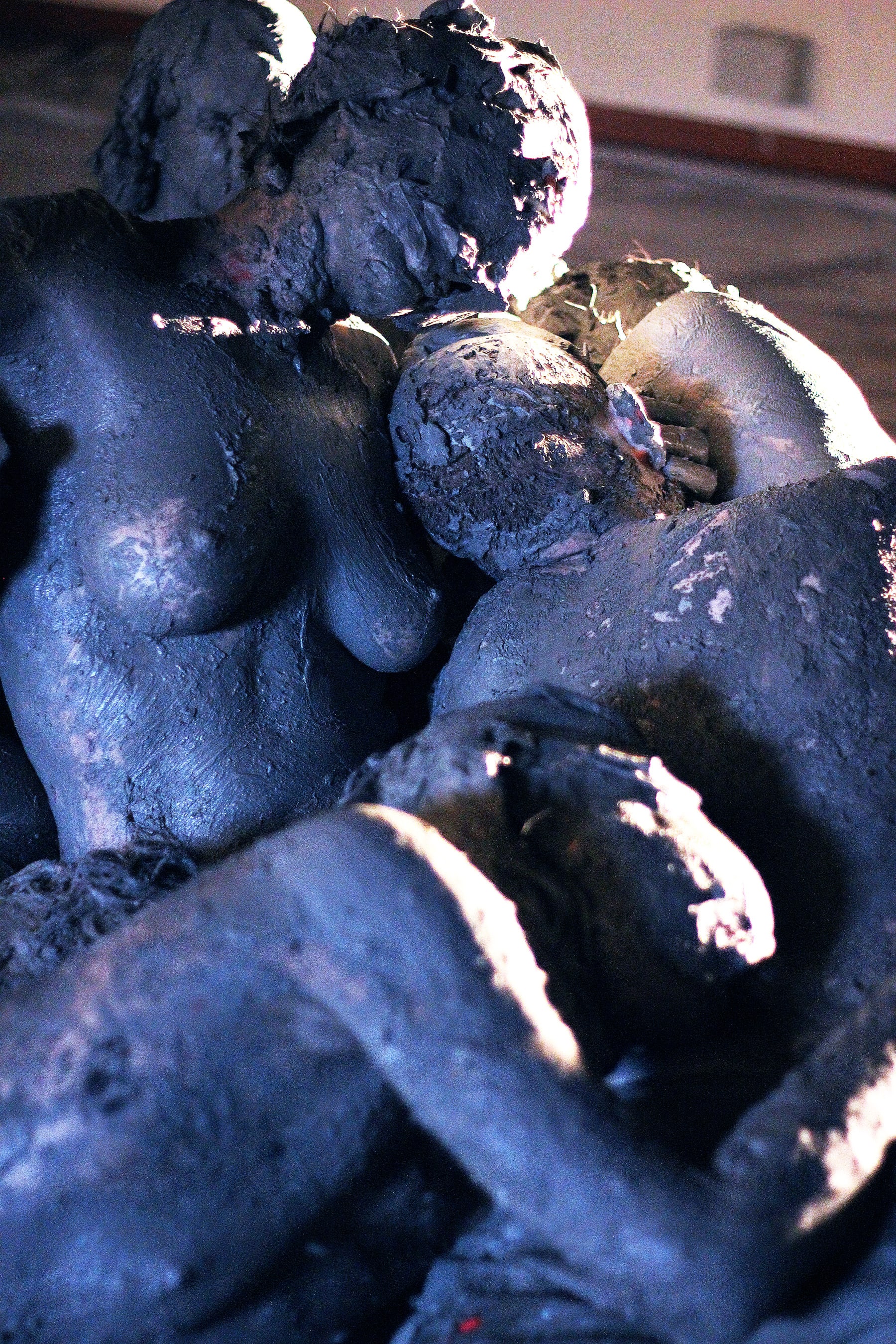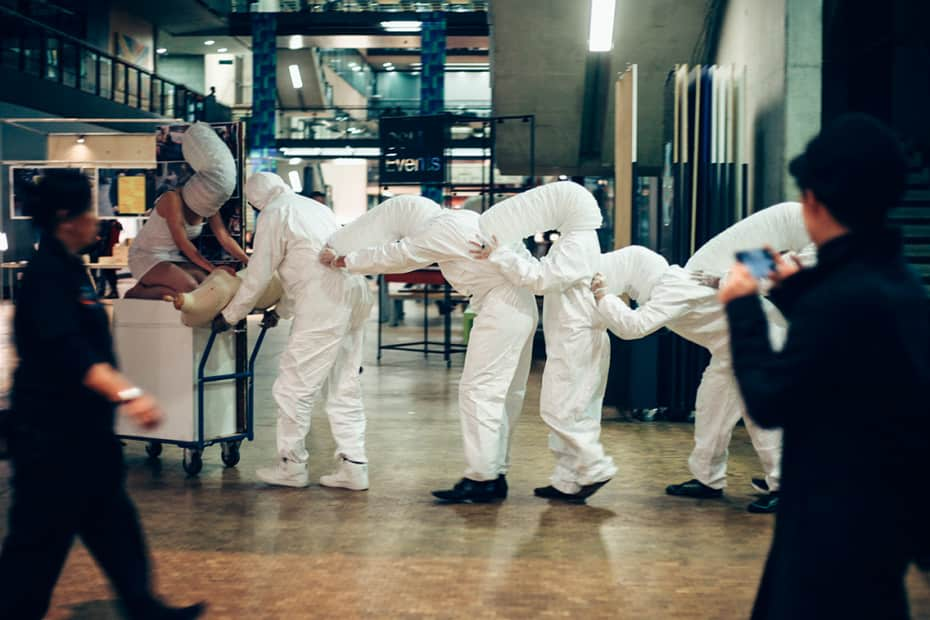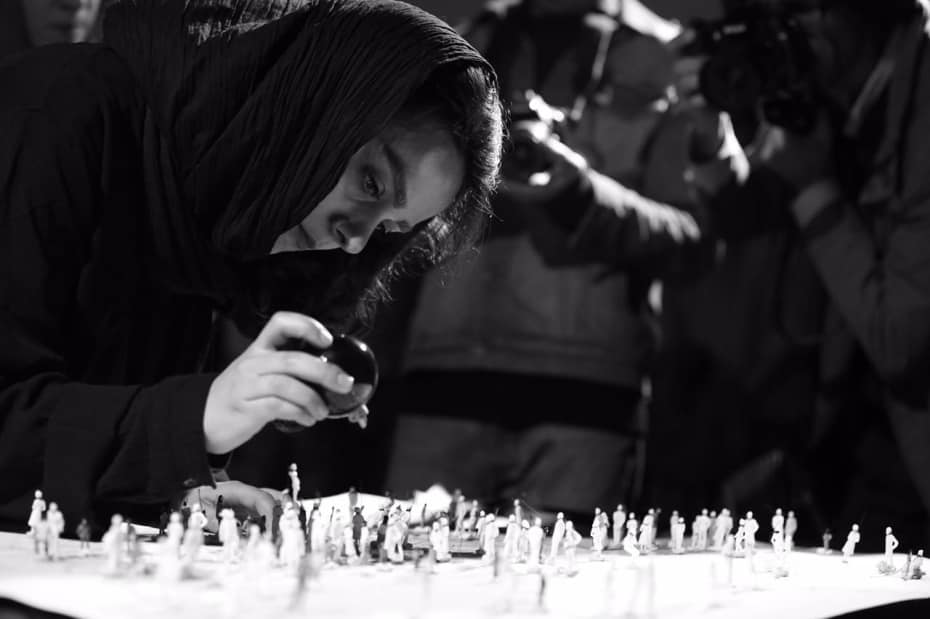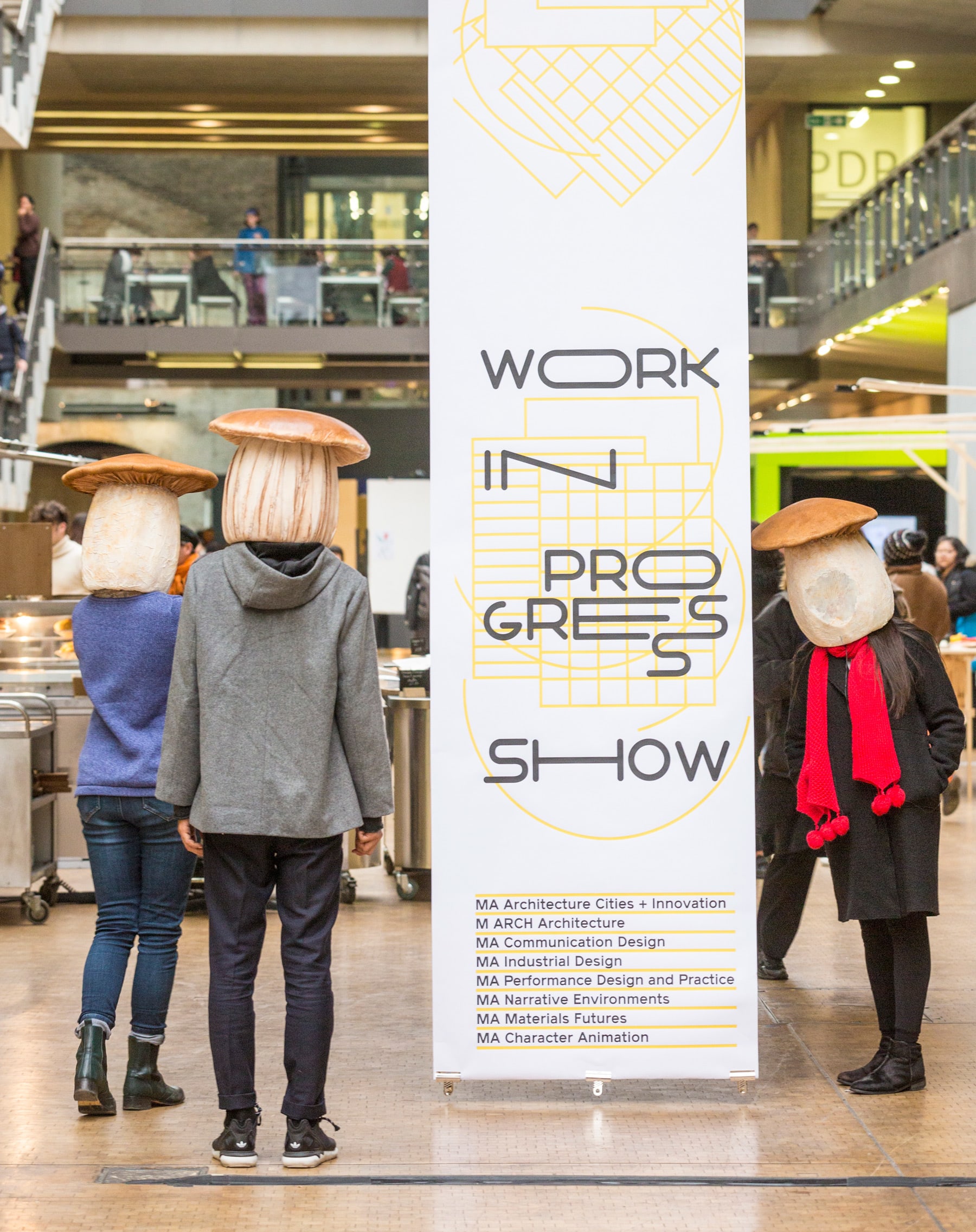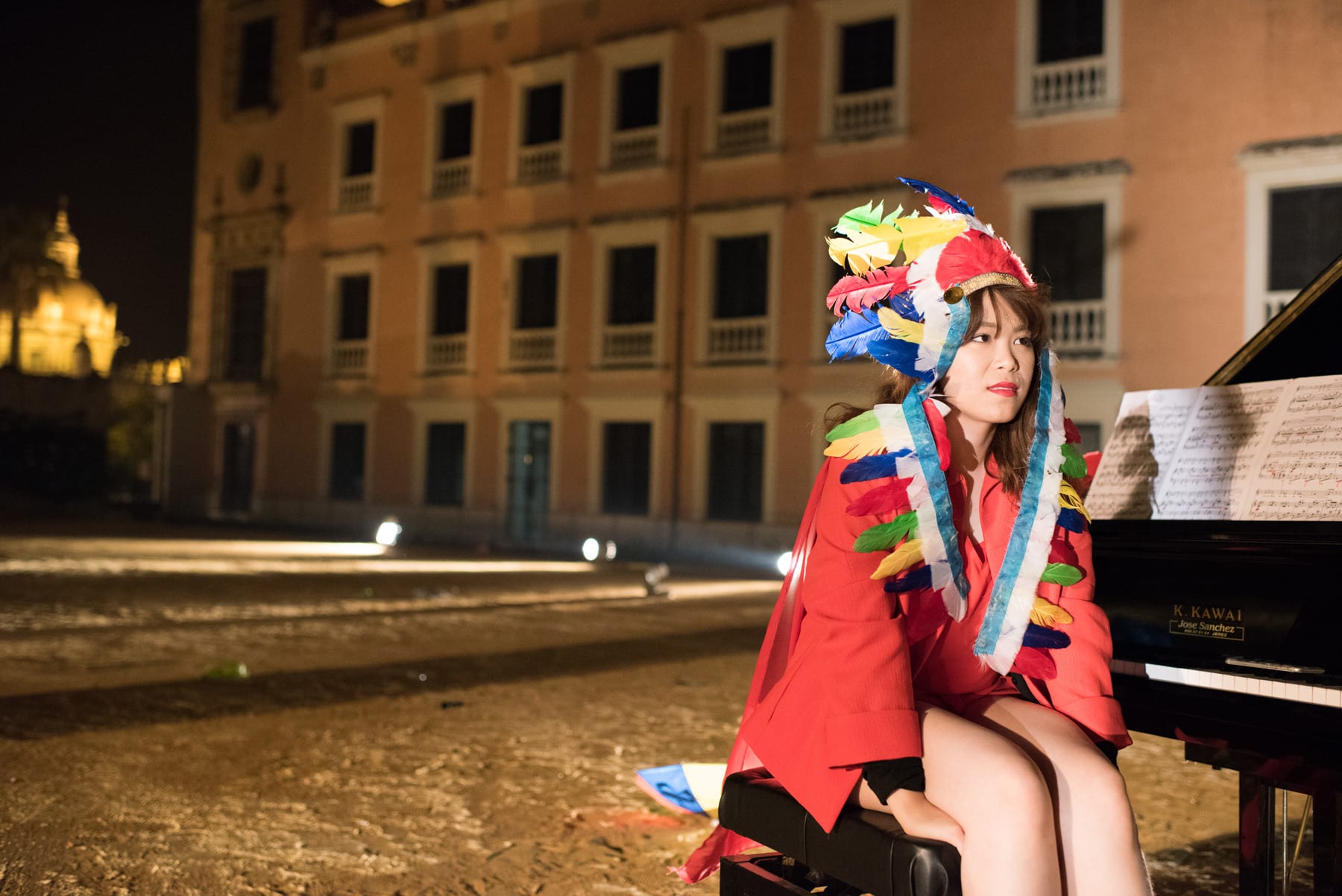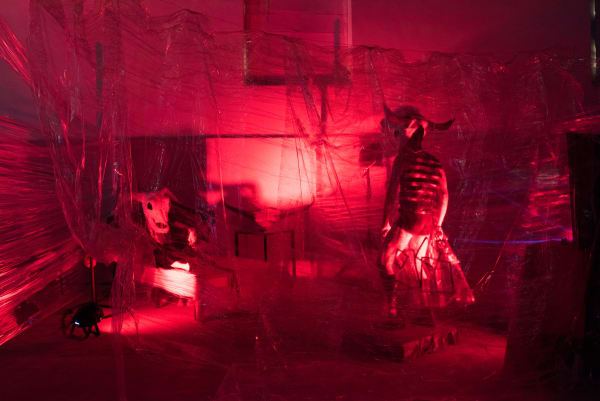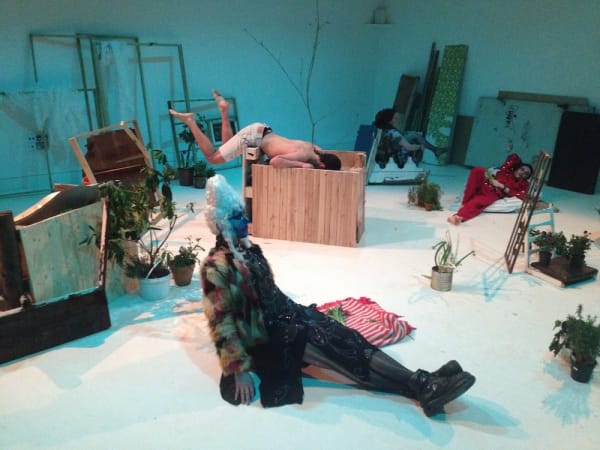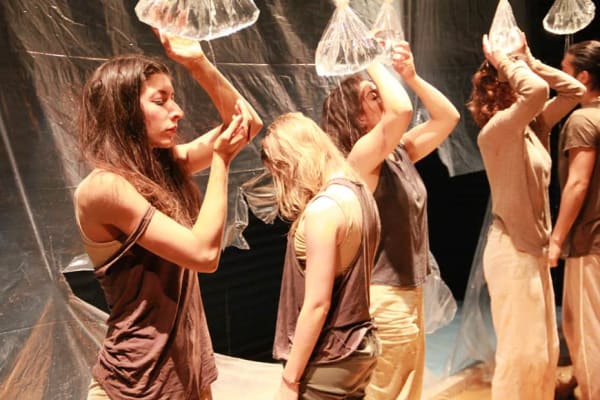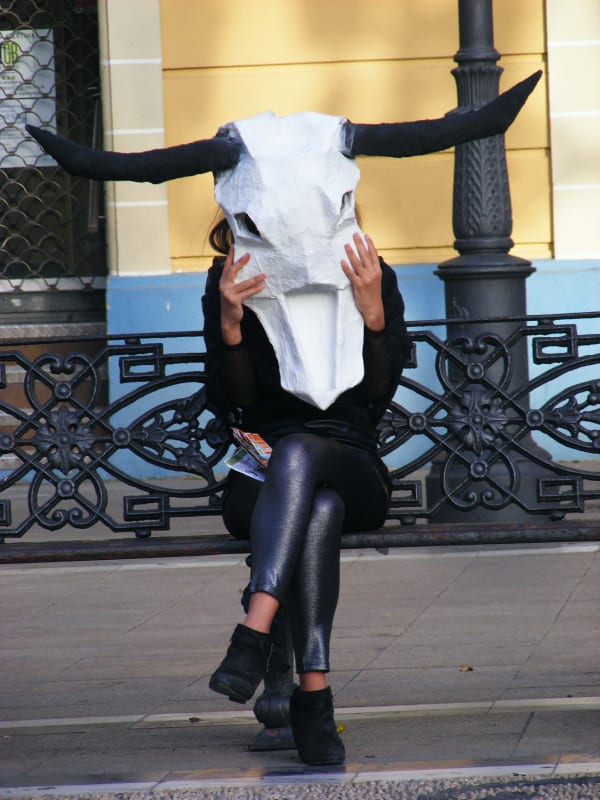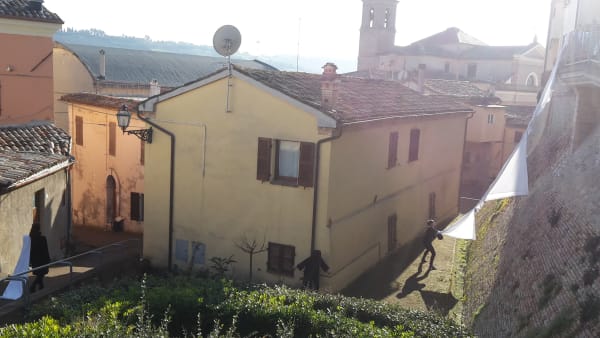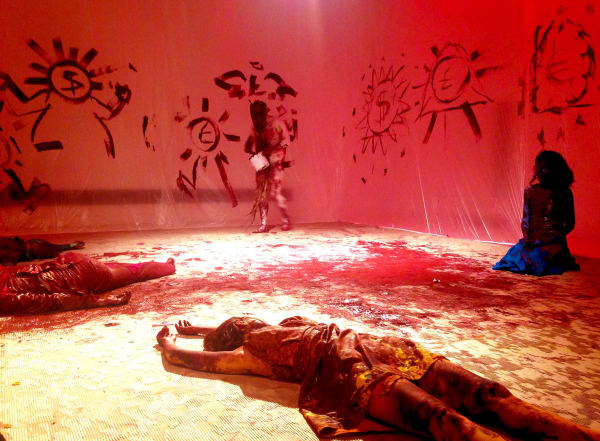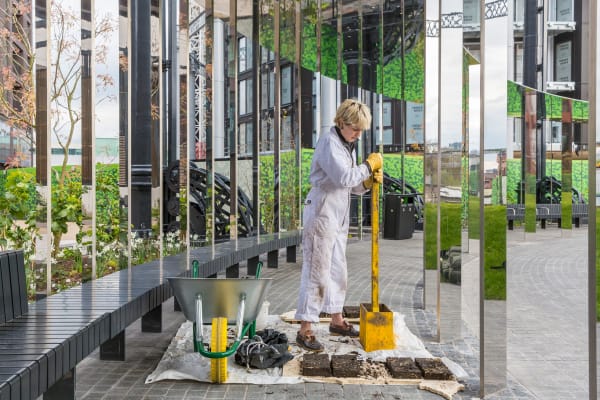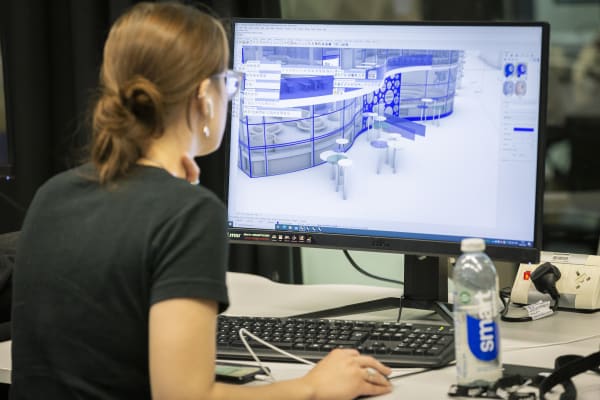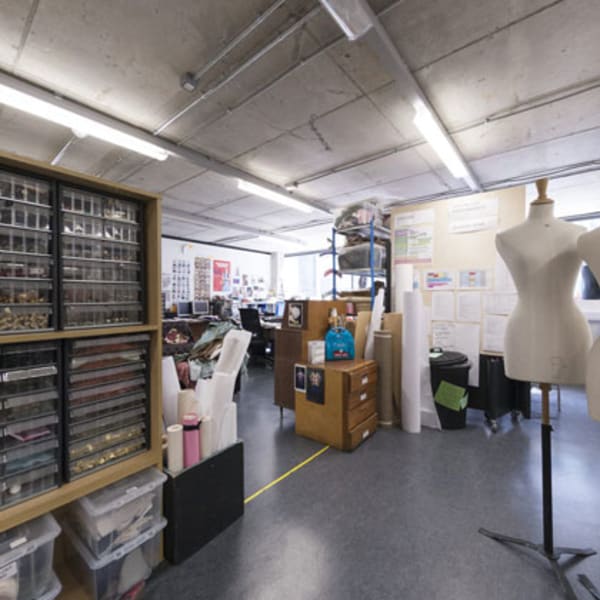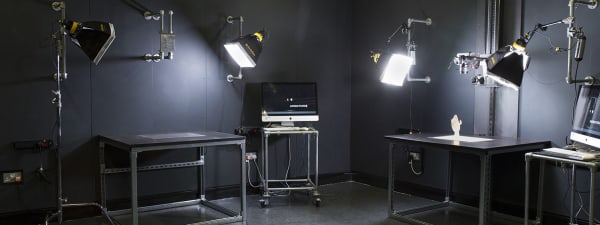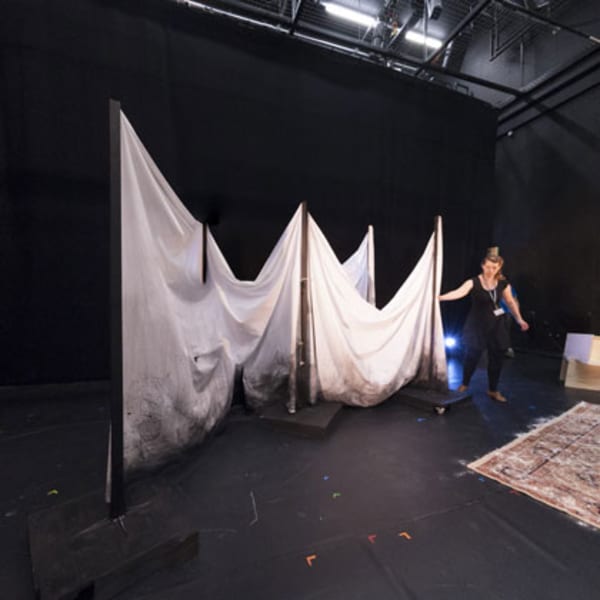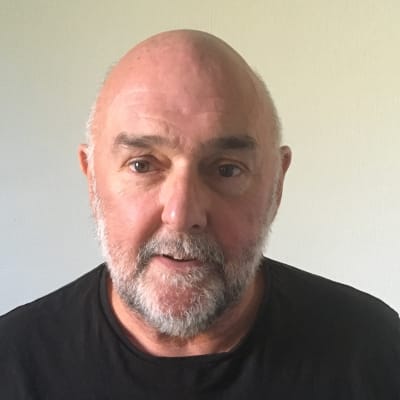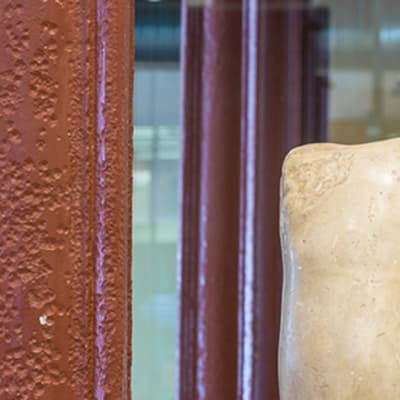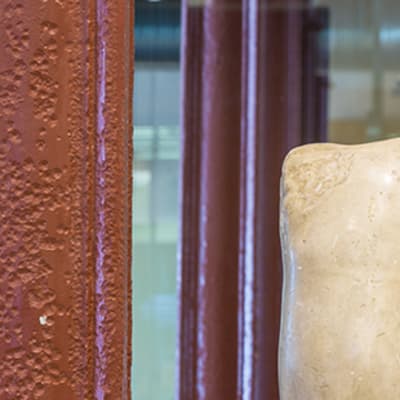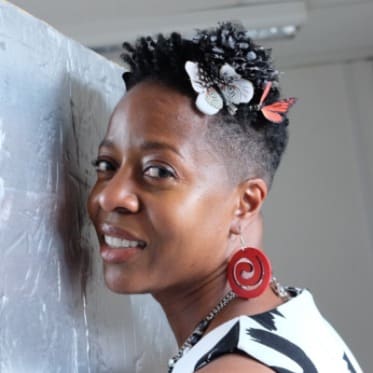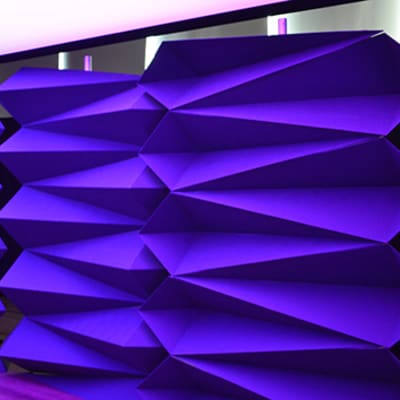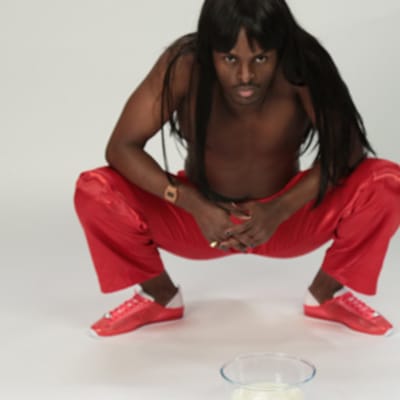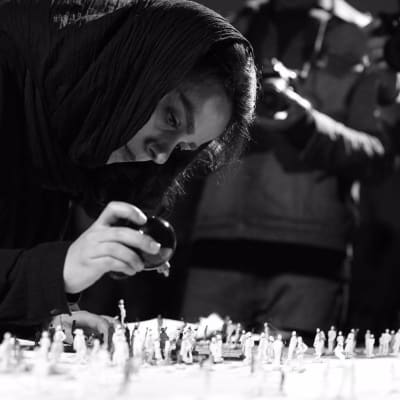Course units
Unit 1: Collaborative Practices
The first part of the course the primary focus is on those collaborative processes Where artists work together to realise a shared creative vision.
During this unit, you will be asked to engage in a number of collaborative projects, normally 3, each of which culminates in a public presentation. The secondary focus of the unit is on exploring the resources available to you as you move towards individual practice, among these are your teachers, the programme technical team and particularly your fellow students.
Each project comes with a brief which suggests a theoretical lens. These theoretical perspectives, unpacked through seminars and workshops will normally be expected to impact on the development of the practical work.
Overall, this unit gives you the opportunity to develop your experience of collaborative working, and importantly it fosters creative relationships that will support you though units 2 and 3.
Unit 2: Performance as Dialogue
The second part of the course places more emphasis on developing your individual practice and expands its focus to include processes where artists work alone or together to support and realise an individual artist’s creative vision.
Alongside the development of your practice the key question that underpins this unit is; What is the socio-political context for contemporary performance? What is its purpose? Who is it for? What might it be?
This unit focusses on how the work you make together and the performance language you use can be understood and further developed. To do this the unit looks into how the work you are making is likely be encountered interpreted and understood by an audience, viewer or participants. Throughout the unit you are asked to present proposals for performance-based projects; these may be presentations of performance fragments or short form experimental works. Your critical position, as a practitioner, and your developing concerns are expanded on through a deeper engagement with research or practice enquiry. The proposals that you conceive and develop through this unit will be further explored or realised in the final unit.
Through a programme of studio critiques, you will be supported in an interrogation of how you and your peers, as well as more established artists, communicate ideas and elicit emotional responses.
Unit 3: Independent Project
This final part of the course will ask you to define your specific area of practice performer/director/designer for example. Bringing your ideas and skills to a conclusion; you will be required to contribute to a body of independent collaborative practice for presentation, alongside a written research document.
Critical skills and methodologies
You will focus on practice-based research, including the theoretical context surrounding practice. The course also aims to facilitate greater insight into debates around contemporary art and performance.
Independence and professional preparation
MA Performance: Design and Practice encourages independent practice within collaborative frameworks supported by seminars and discussions. In developing your individual practice will be able to draw on the wide professional and academic experience of the course team and others within the university.
Important note concerning academic progression through your course: If you are required to retake a unit you will need to cease further study on the course until you have passed the unit concerned. Once you have successfully passed this unit, you will be able to proceed onto the next unit. Retaking a unit might require you to take time out of study, which could affect other things such as student loans or the visa status for international students.
CSM Academic Support is delivered by a team of academics and practitioners working alongside your course to help you progress and achieve your maximum potential as a student. Academic Support can help you to develop your skills in different areas, including critical thinking, research and writing, time management, presentations and working independently and collaboratively. These may be offered as part of your timetabled classes or as bookable tutorials and workshops.
Mode of study
MA Performance: Design and Practice is offered in extended full-time mode which runs for 60 weeks over two academic years. You will be expected to commit 30 hours to study and your developing practice per week, which includes teaching time and independent study.
The course is designed in such a way as to enable you to pursue studies, while also undertaking part-time employment, internships or care responsibilities.
Credit and award requirements
The course is credit-rated at 180 credits.
On successfully completing the course, you will gain a Master of Arts (MA degree).
Under the Framework for Higher Education Qualifications, an MA is Level 7. All units must be passed in order to achieve the MA but the classification of the award is derived from the mark for the final unit only.
If you are unable to continue on the course, a Postgraduate Certificate (PG Cert) will normally be offered following the successful completion of 60 credits, or a Postgraduate Diploma (PG Dip) following the successful completion of 120 credits.
